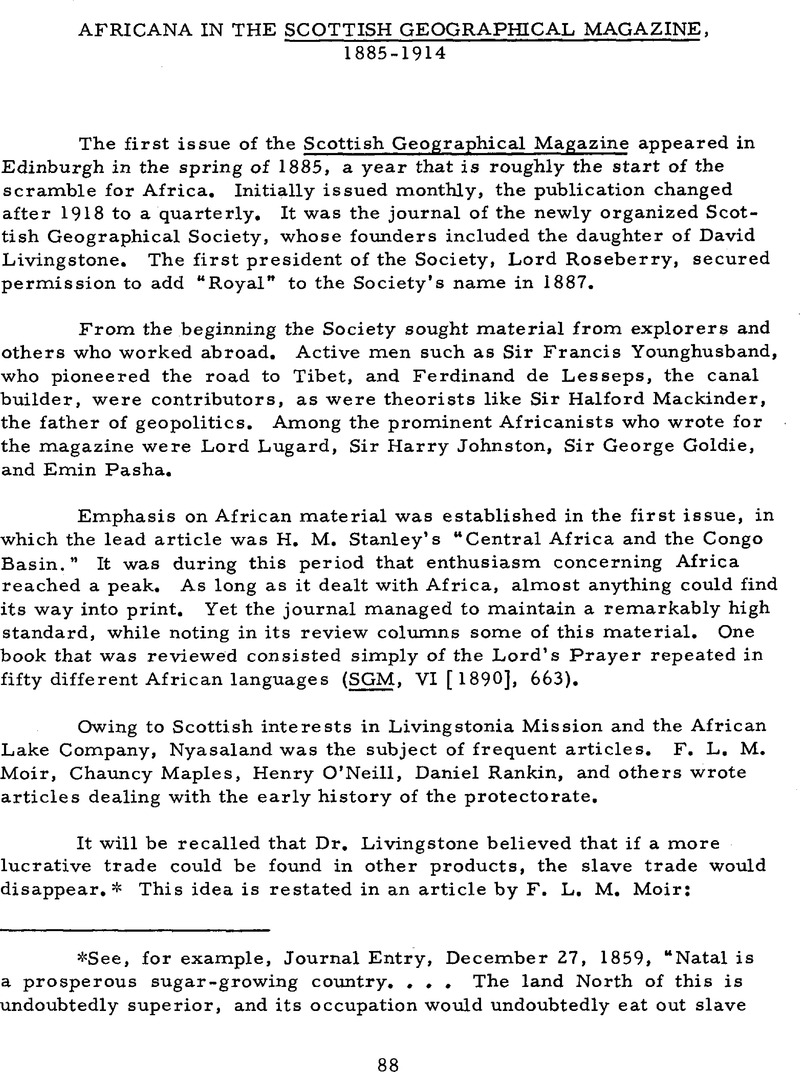No CrossRef data available.
Article contents
Africana in the Scottish Geographical Magazine, 1885–1914
Published online by Cambridge University Press: 23 May 2014
Abstract

- Type
- Other
- Information
- Copyright
- Copyright © African Studies Association 1966
References
page 88 note * See, for example, Journal Entry, December 27, 1859, “Natal is a prosperou s sugar-growing country. … The land North of this is undoubtedly superior, and its occupation would undoubtedly eat out slave trade. O for the time to come, as come it will for a'that.” The Zambezi Expedition of David Livingstone, 1858-1863, edited by Waller, J. R. S. (London, 1956), I, 141–142 Google Scholar.
page 89 note * The importance of Rankin's discovery was in extending the sphere of British naval power into the Zambezi basin. The Chinde mouth would allow British gunboats--from Zanzibar and South African bases--to operate inland. Lord Salisbury had taken the view that “it is of no use declaring a river to be a highway of nations when there is only one fathom of water in it--and not always that.” (Quoted in Gwendolyn, Lady Cecil's Life of Robert, Marquis of Salisbury [London, 1932], IV, 241 Google Scholar. ) For Rankin' s account of the discovery of the Chinde see “The Zambesi Delta,” SGM, V (1889), 475–480 Google Scholar, and chapter xiii of his book, The Zambesi Basin (Edinburgh, 1893)Google ScholarPubMed.
page 89 note ** Editors of the magazine were Arthur Silva White and Hugh A. Webster, 1885-1886; White, 1887-1892; W. A. Taylor, 1893-1899; George Sandeman, 1900-1901; and Miss M. I. Newbigin, 1902-1914.
page 90 note * Book review of Greswell, William, Our South African Empire (2 vols., London, 1885)Google Scholar, SGM, I (1885), 585–586 Google Scholar.
page 90 note ** Book review of SirMuir, William, The Caliphate: Its Rise, Decline and Fall (London, 1891)Google Scholar, SGM, VIII (1892), 52–53 Google Scholar.


